Gene Therapy for Hemophilia
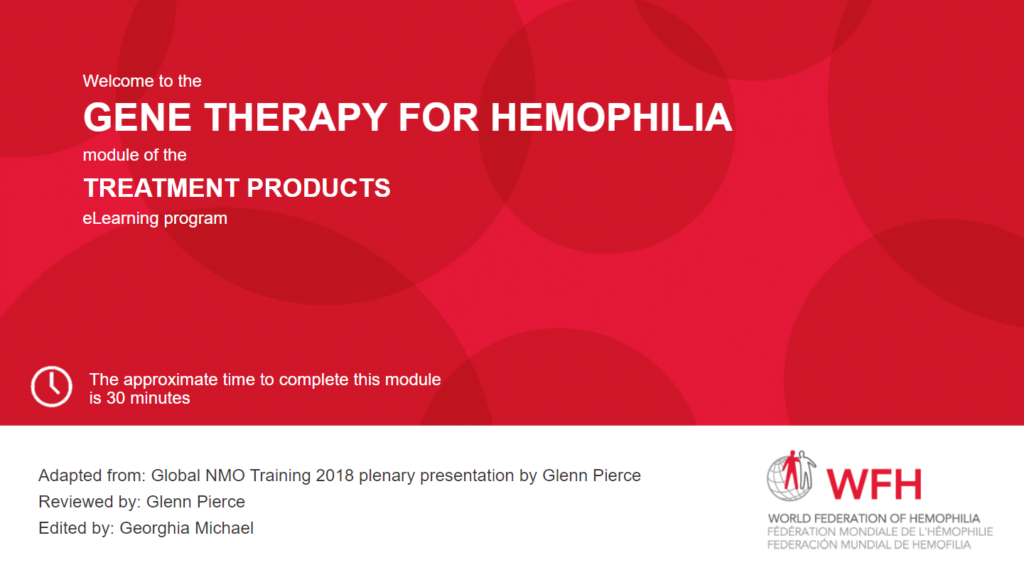
Adapted from: Global NMO Training 2018 plenary presentation by Glenn Pierce Reviewed by: Glenn Pierce Edited by: Georghia Michael The learner is strongly advised to complete Module 1 Introduction to Bleeding Disorders and Module 2 Evolution of Treatment Products, in the WFH Treatment Products eLearning Program before embarking upon Module 3. This third module in […]
Report on the Annual Global Survey 2018
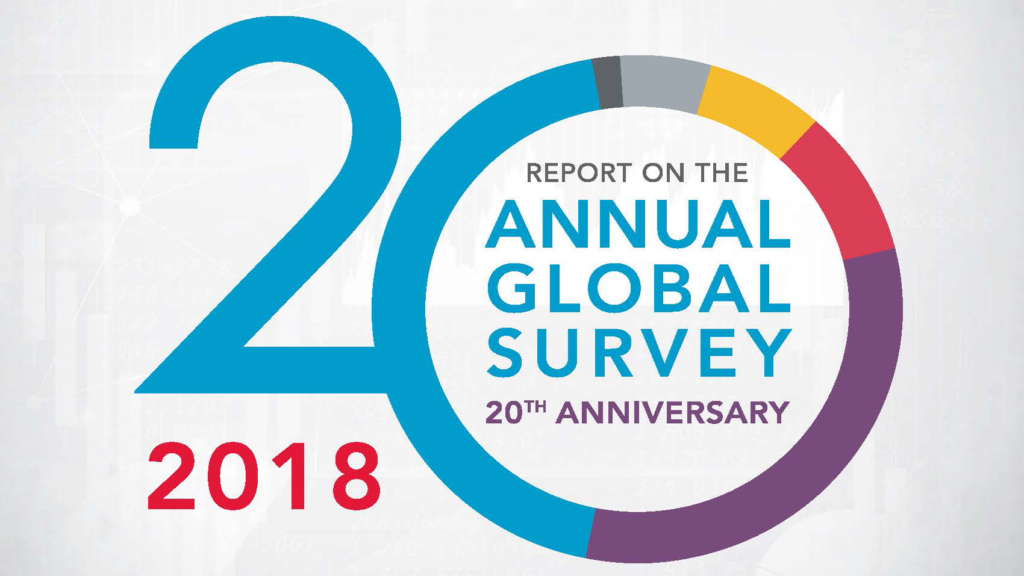
This report celebrates the 20th anniversary of the Annual Global Survey (AGS). It includes demographic and treatment data, providing a global snapshot of people with hemophilia, von Willebrand disease, other rare factor deficiencies, and inherited platelet disorders around the world.
Evolution of Treatment Products
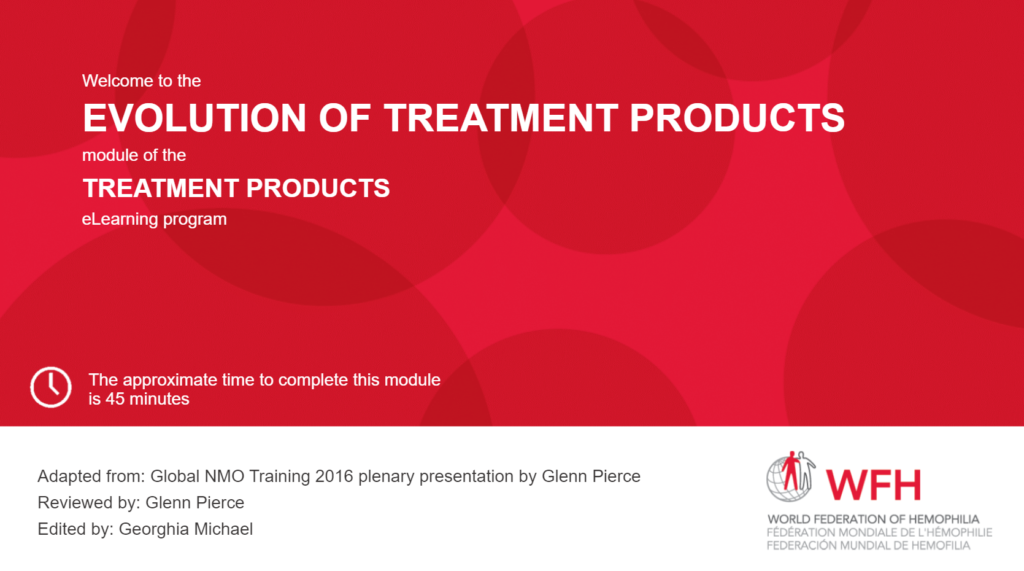
Adapted from: Global NMO Training 2016 plenary presentation by Glenn Pierce Reviewed by: Glenn Pierce Edited by: Georghia Michael This second module in the Treatment Products eLearning Program explains the evolution of products for the treatment of bleeding disorders, from products derived from blood to artificially produced clotting factor concentrates (CFCs) with extended half-lives (EHL). […]
Hemophilia, relationships and intimacy: answering your questions

In this short video, Luis Melgar, a young man with a bleeding disorder, discusses some common questions regarding relationships, intimacy, and sexuality with WFH psychosocial and musculoskeletal experts Frederica Cassis and Greig Blamey. Covering topics such as dating, kissing, disclosing a bleeding disorder, sexual health, and marriage and having children, their casual conversation may answer […]
ePosters of the XXXI International Congress of the World Federation of Hemophilia
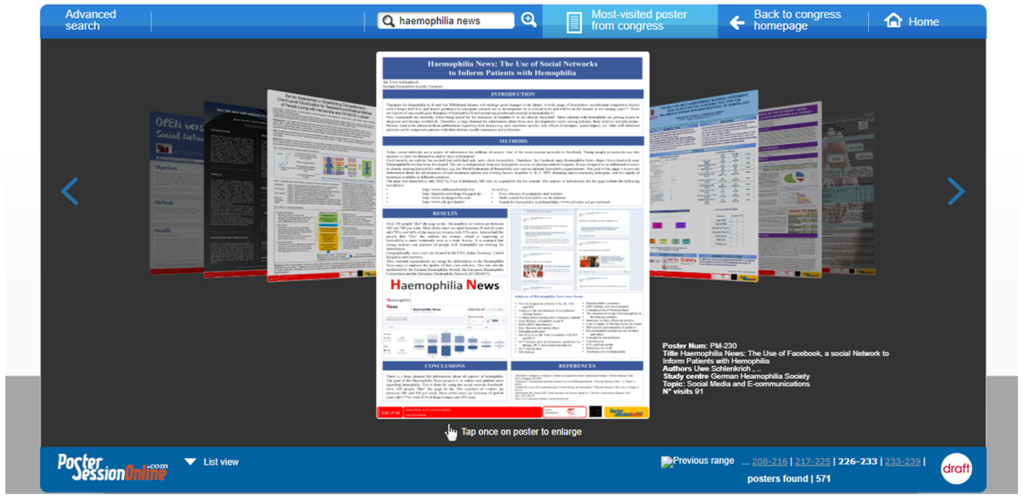
This interactive carousel features over 500 posters presented at the WFH 2014 World Congress in Melbourne, which can be searched by title, author, poster number, or topic. Via the Options tab on the right of each poster, viewers may download, print, or email posters; email poster authors directly; or participate in an online discussion. Please […]
ePosters of the XXX International Congress of the World Federation of Hemophilia
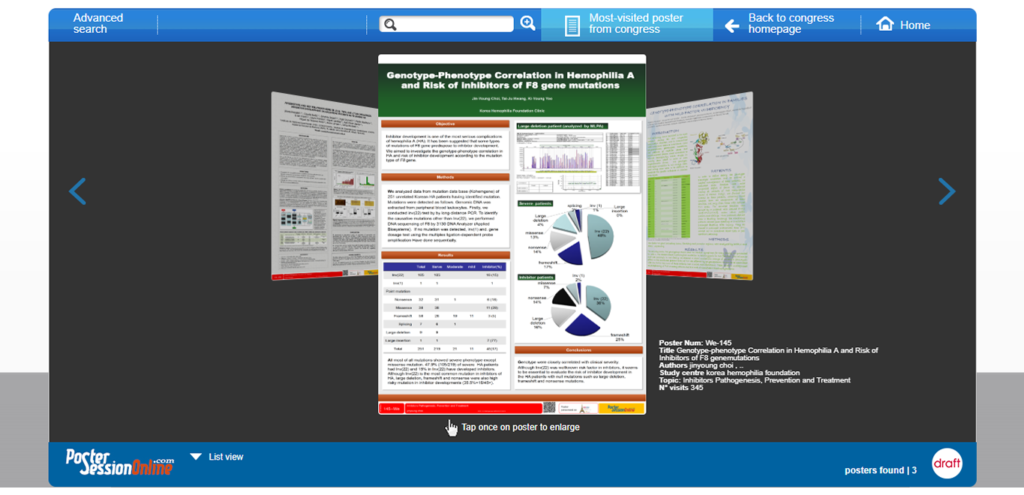
This interactive carousel features over 400 posters presented at the WFH 2012 World Congress in Paris, which can be searched by title, author, poster number, or topic. Via the Options tab on the right of each poster, viewers may download, print, or email posters; email poster authors directly; or participate in an online discussion. Please […]
WBDR 2018 Data Report
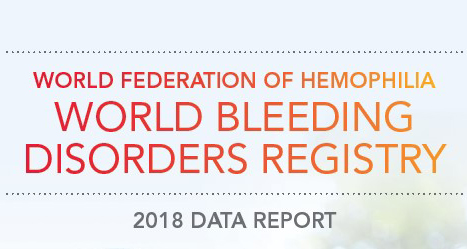
The World Bleeding Disorders Registry (WBDR) 2018 Data Report provides aggregate data on more than 1100 people with hemophilia around the globe who are registered in the WBDR.
Annual Global Survey Mini Report 2: Age
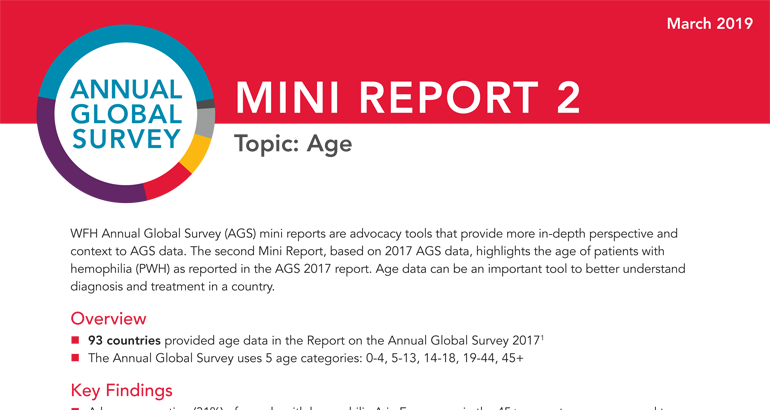
The WFH Annual Global Survey (AGS) mini reports are advocacy tools that provide more in-depth perspective and context to AGS data. The second Mini Report, based on 2017 AGS data, highlights the age of patients with hemophilia. Age data can be an important tool to better understand diagnosis and treatment in a country.
Recommendations for management of pregnancy and delivery in women with inherited bleeding disorders
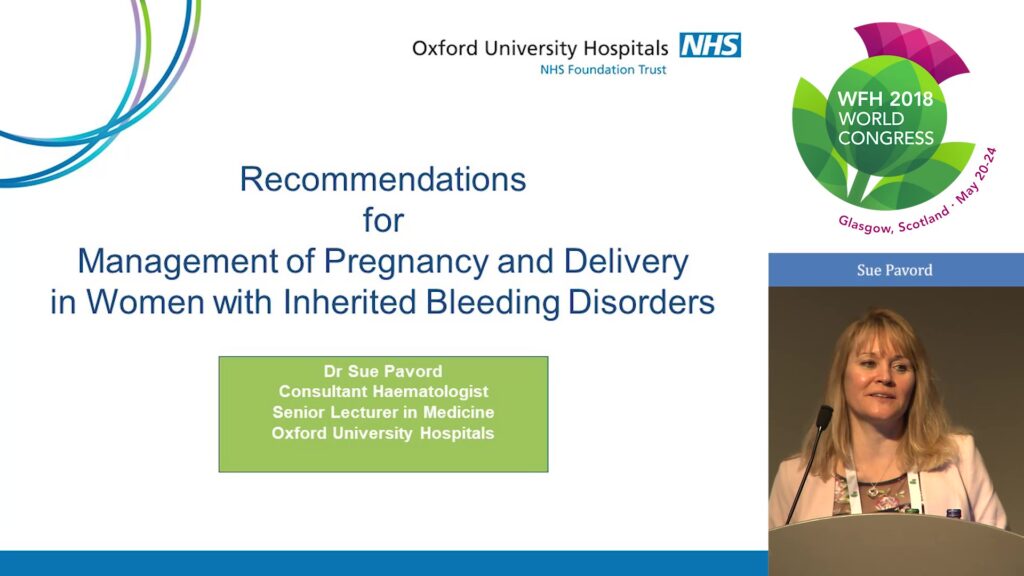
In the Sunday morning session entitled Women and Bleeding Disorders, Sue Pavord talks about the UK Guidelines for the management of inherited bleeding disorders in pregnancy and gives an overview of the recommendations included for hemophilia, von Willebrand Disease, rare factor deficiencies, and platelet function disorders.
Chromogenic Factor IX Assay in Laboratory Diagnosis and Monitoring of Treatment in Hemophilia B – To be aware of Challenges
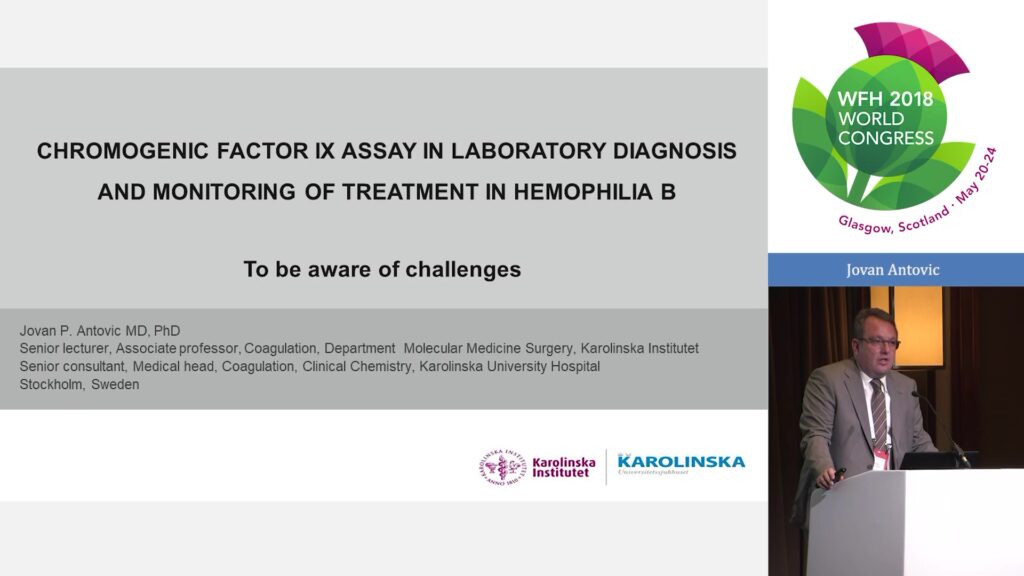
In the Tuesday afternoon session entitled Chromogenic Factor IX Assay in Laboratory Diagnosis and Monitoring of Treatment in Hemophilia B – To be Aware of Challenges, Jovan Antovic presents data comparing one-stage assays with chromogenic assays for quantifying clotting factor activity, focusing on the challenges presented by their use in diagnosis.
New Biological Insights in von Willebrand Disease: Angiogenesis and Angiodysplasia
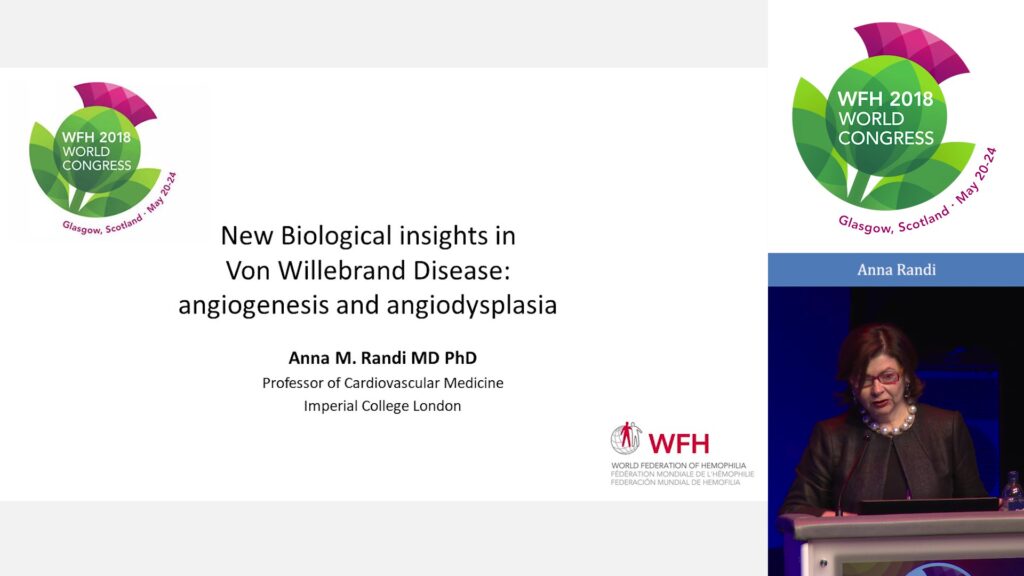
In the Tuesday afternoon session entitled von Willebrand Disease: Clinical Conundrums, Anna Randi describes the mechanisms that regulate angiogenesis proposing a possible role of VWF in this regulation and discussing therapeutic implications of the latest findings in this field.
von Willebrand Disease: Current Approaches to Diagnosis and Treatment
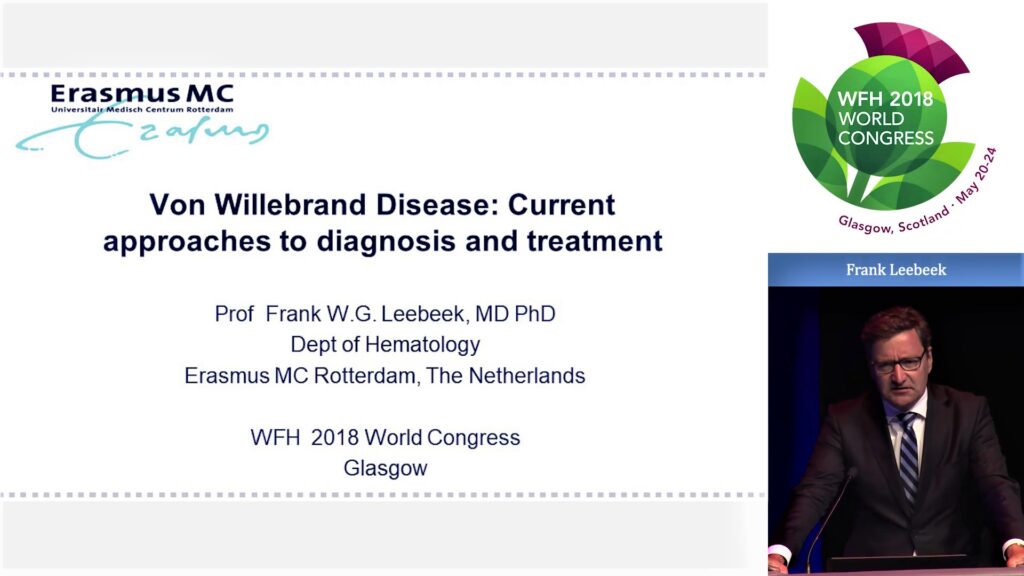
In the Tuesday afternoon session entitled von Willebrand Disease: Clinical Conundrums, Frank Leebek presents the current challenges in VWD diagnosis and treatment, namely bleeding score variability, overlap of type 1 VWD with low VWF, and the hampering effect of biological variation on test results, as well as the effect of DDAVP on VWF levels.
